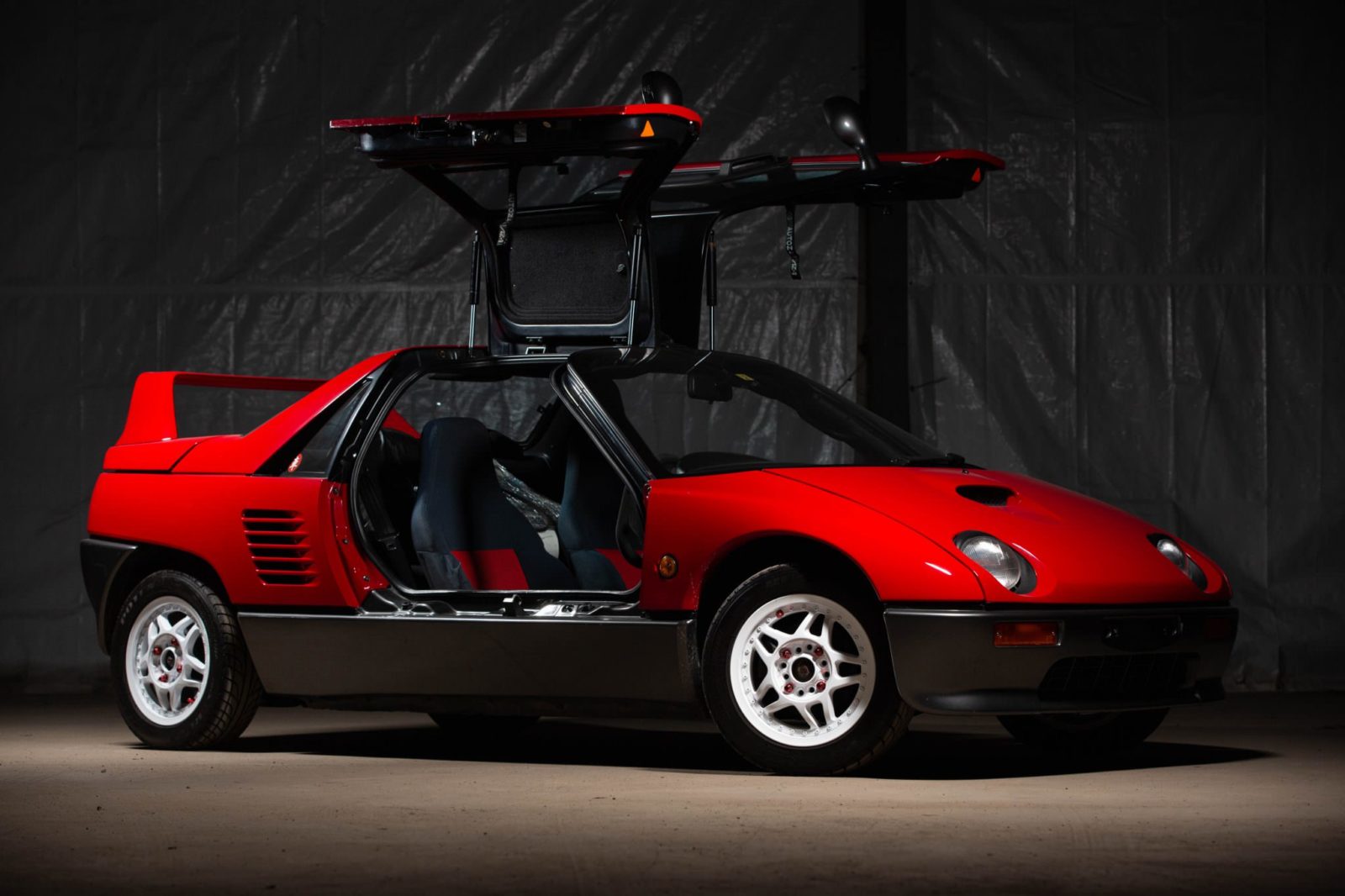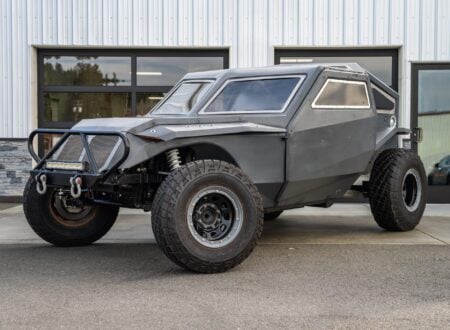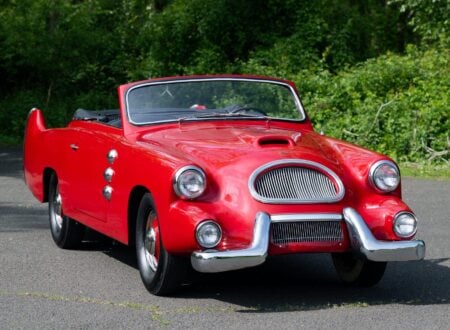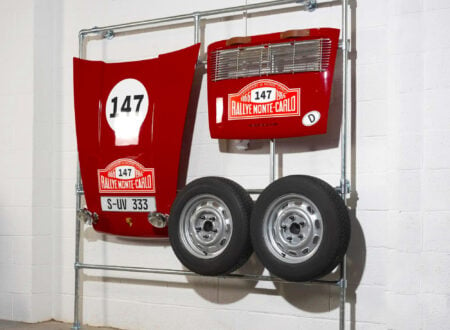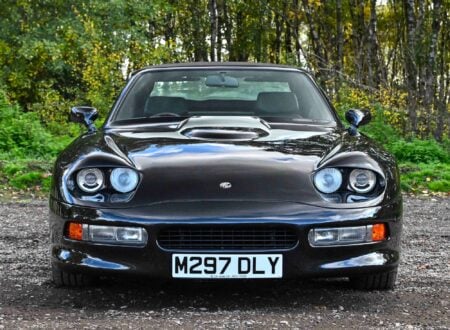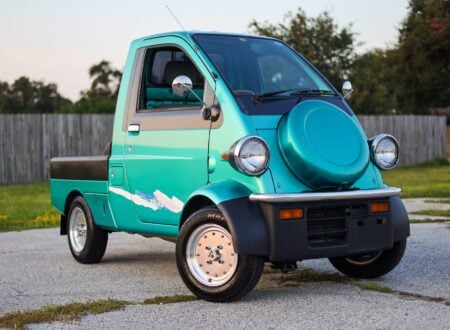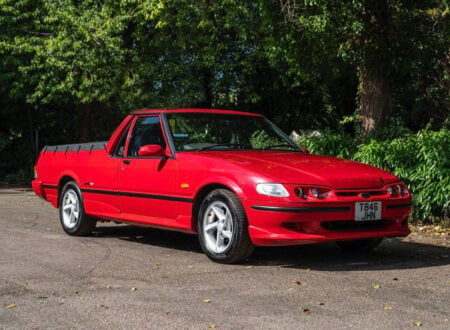The Autozam AZ-1 is a car that even many die hard car guys have never heard of, largely because it was only ever offered in the Japanese domestic market.
Originally developed in the 1980s, the Autozam AZ-1 carries styling cues from the era – like Ferrari Testarossa-inspired side strakes, DeLorean DMC-12-inspired gullwing doors and sectioned side windows, a side profile not entirely unlike the Fiat X1/9, and the two tone color scheme of the Ferrari 512BB.
Fast Facts – The Autozam AZ-1
- The early prototypes of the Autozam AZ-1 were developed by Suzuki, the project was taken over by Mazda when Suzuki decided to concentrate on their Cappuccino Kei car.
- The development work on the AZ-1 was led by Toshihiko Hirai who also developed the original Mazda MX-5 (known as the Miata in some markets).
- The mid-engined AZ-1 is powered by a turbocharged inline-three cylinder engine with a displacement of 657cc producing 66 hp, power is sent to the rear wheels via a 5-speed manual transmission.
- By the time the car was released in early 1992 a recession was sweeping Japan, as a result fewer than 4,400 examples of the AZ-1 were built over three years, with production ending in 1994.
Almost A Suzuki: Autozam AZ-1 Development
Back in the mid-1980s Suzuki developed a small mid-engined sports car called the Suzuki RS/1 to meet Japan’s Kei class regulations. Kei class vehicles all have to be built to a certain size and there are strict limits on engine size and power – in turn they’re much cheaper to tax and insure.
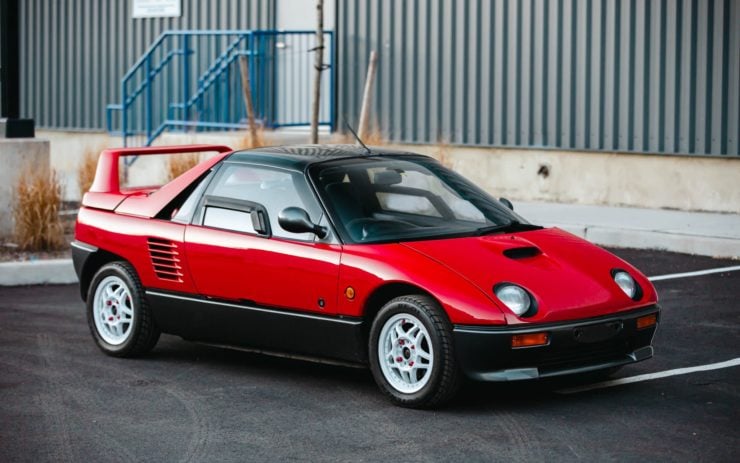

Suzuki displayed a fully-functional and almost production ready version of the RS/1 at the Tokyo Motor Show, a couple of years later in 1987 they showcased the RS/3 before abandoning the project and instead focussing on the car that would become the Suzuki Cappuccino.
Later in the 1980s a Mazda design team led by Toshihiko Hirai, the father of the MX-5, took over the project. Hirai and his team gave the car a tubular steel frame, the floors and the bulkhead were made from aluminum honeycomb, and the body was constructed from fiberglass.
By the time of the 1989 Tokyo Motor Show there were three prototypes ready for public display, they were called the Type A, Type B, and Type C respectively. Each had the same fundamental underpinnings with unique bodies and interiors, and they were released under Mazda’s Autozam sub-brand.
Ultimately it would be the Type A that would get the green light for production, the chassis was further updated as was the body and interior, with production commencing three years later in 1992.
The Autozam AZ-1
When the Autozam AZ-1 entered the Japanese market in 1992 it offered sports car thrills on a budget for local buyers, as a Kei car the taxes and insurance on it were both markedly more affordable, and it offered excellent fuel economy to boot.
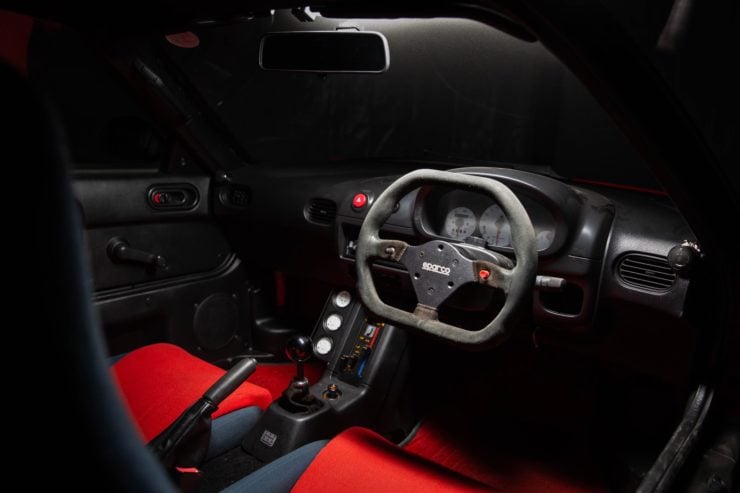

With curb weight of just 720 kilograms (1,587 lbs) and 66 bhp from its turbocharged inline-three cylinder 657cc engine the Autozam AZ-1 was a spritely performer.
Power was sent from the mid-mounted engine to the rear wheels via a 5-speed manual transaxle.
The primary competitors for the AZ-1 were the Suzuki Cappuccino and the Honda Beat – both Kei cars and both slightly cheaper than the Autozam. This combined with the Japanese economic recession that hit the economy at the same time led to limited demand for the car.
Despite optimistic initial predictions of 800 AZ-1s being built each month Mazda would produce just 4,392 between 1992 and 1994 when the model was cancelled. This is considerably less than the 28,010 Cappuccinos and 33,600 Beats that were produced.
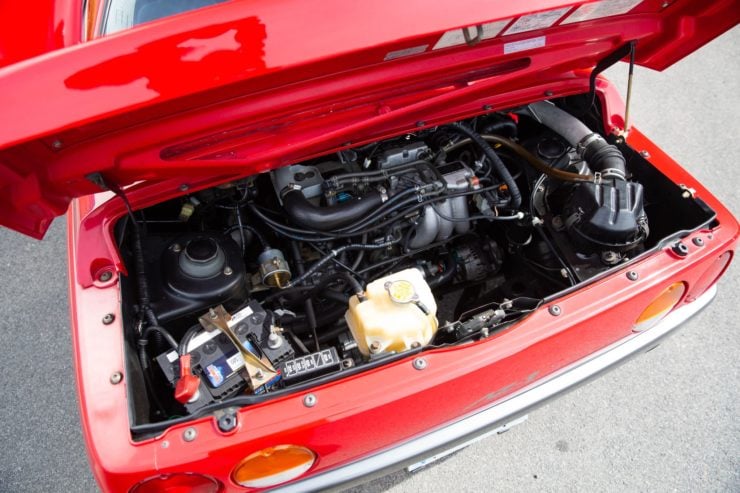

Today the Autozam AZ-1 is one of the rarest and most desirable Kei class sports cars of its time, and thanks to their JDM status they’re sought after in many world markets outside Japan – particularly in the USA and Europe.
The Autozam AZ-1 Shown Here
The car you see here is an Autozam AZ-1 from 1992 – the first year of production. It’s finished in red over black and red upholstery and it’s been fitted with a rear wing, 13″ multi-piece wheels, and a Sparco flat-bottom steering wheel.
Inside you’ll find air conditioning and a Kenwood CD player as well as traditional wind up windows and white-faced gauges.
The car is now being auctioned live online on Bring a Trailer by a seller out of Lyndhurst, New Jersey. If you’d like to read more about it or register to bid you can visit the listing here.
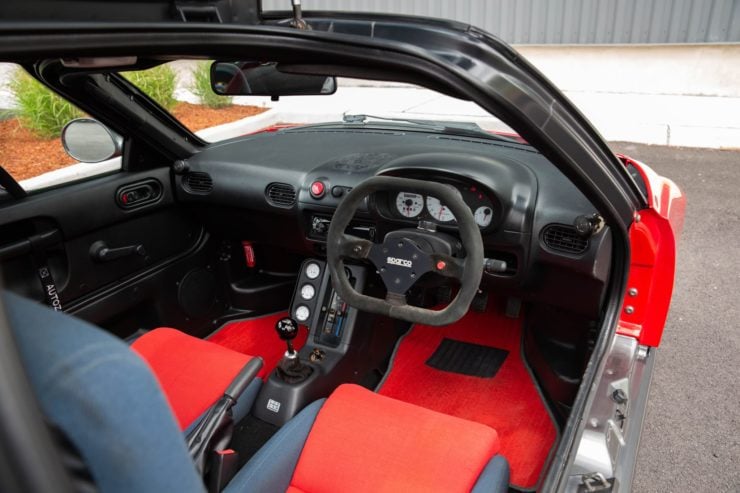
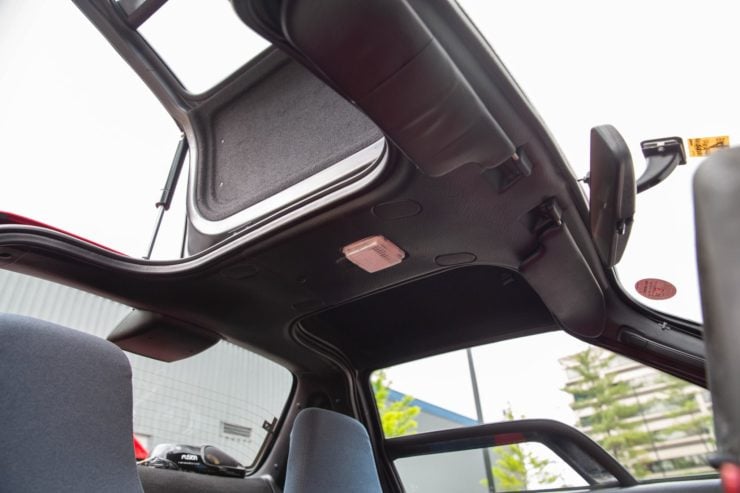
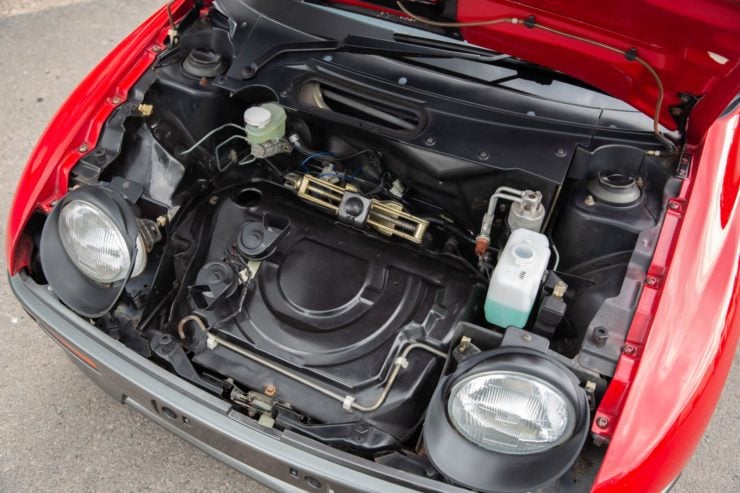
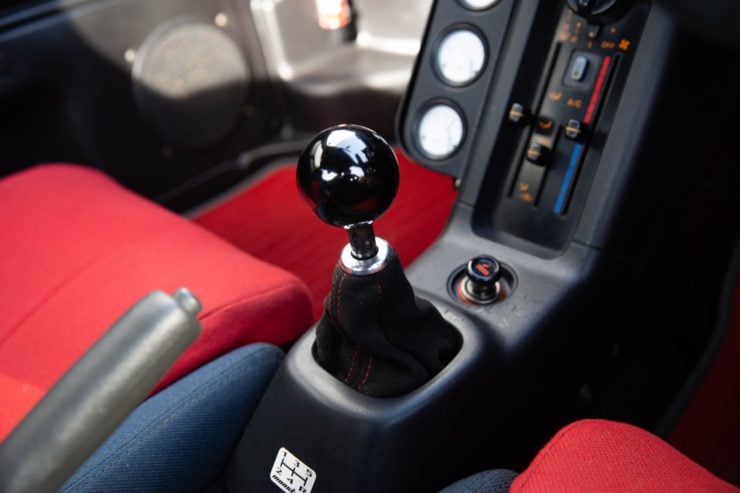
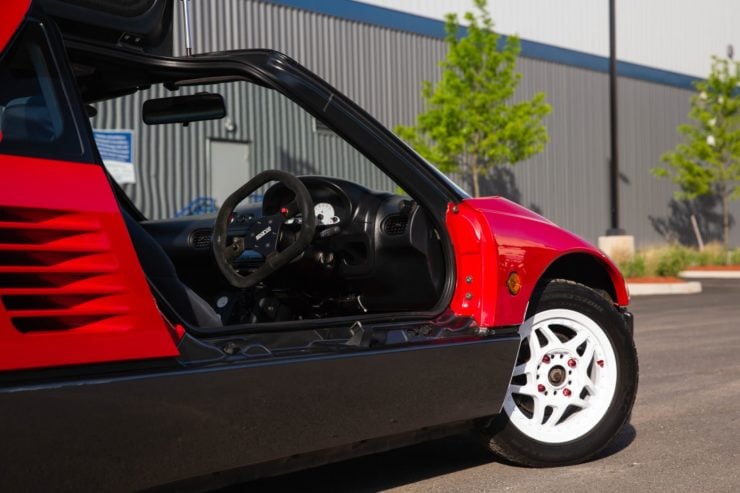
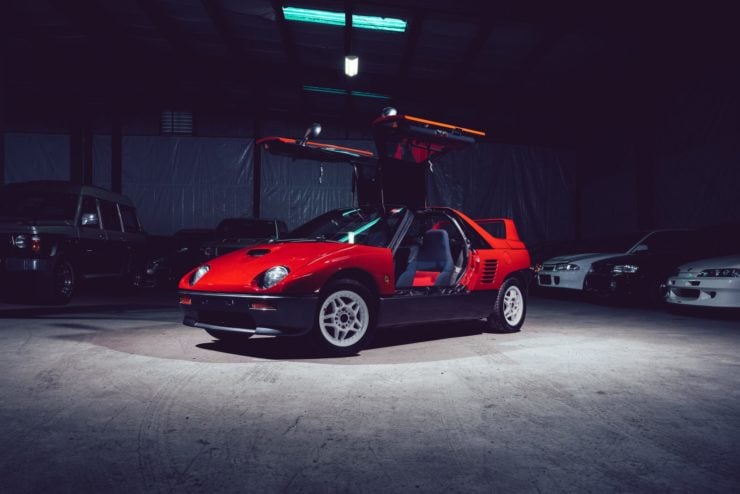
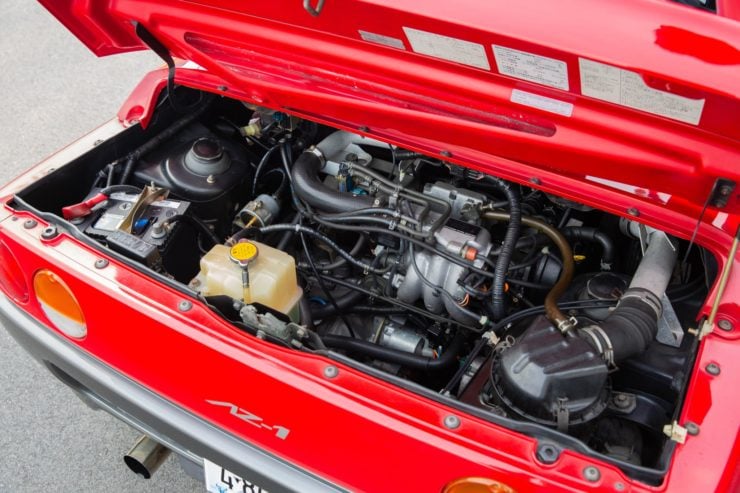
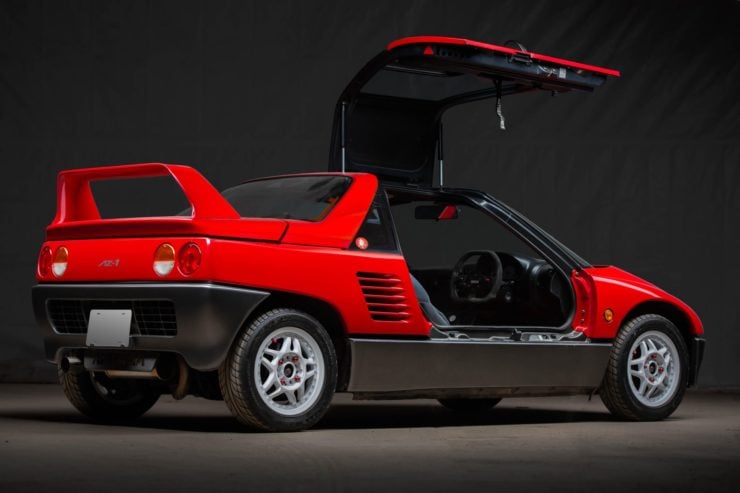
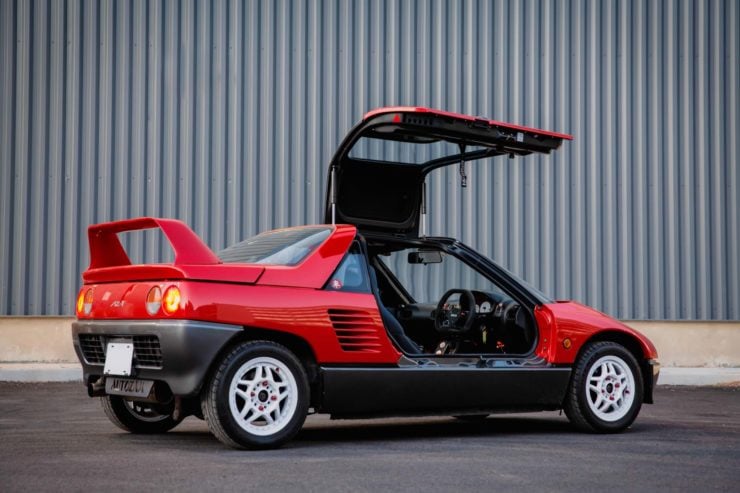
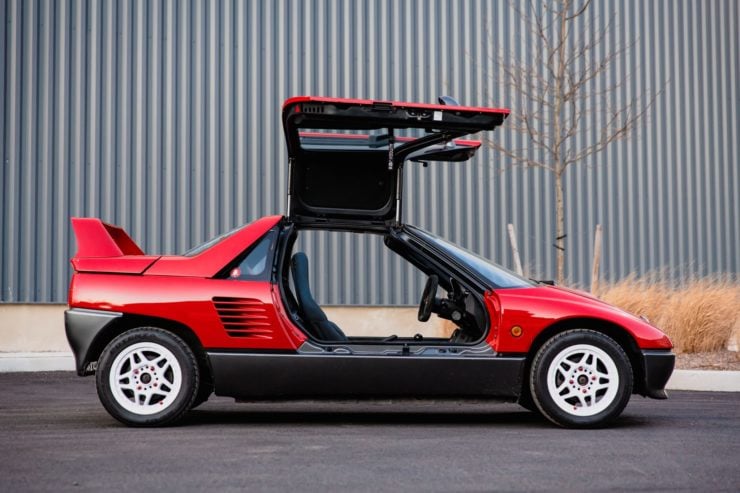
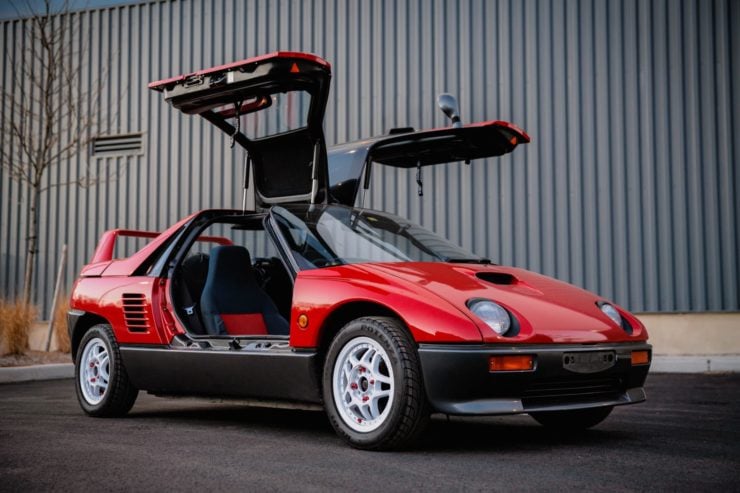

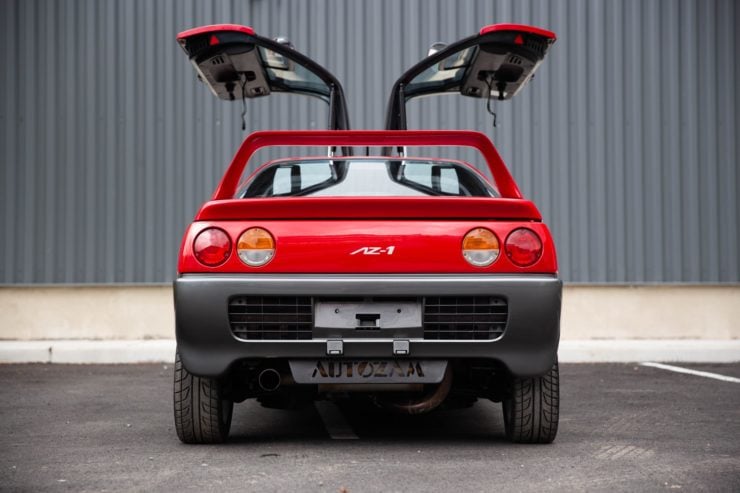
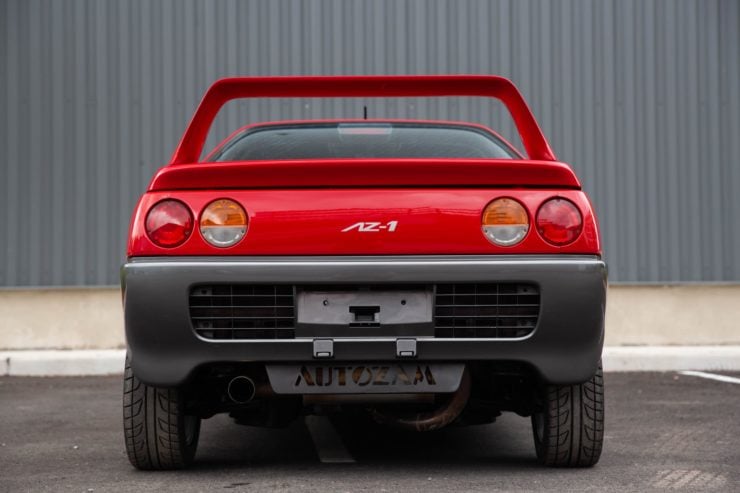
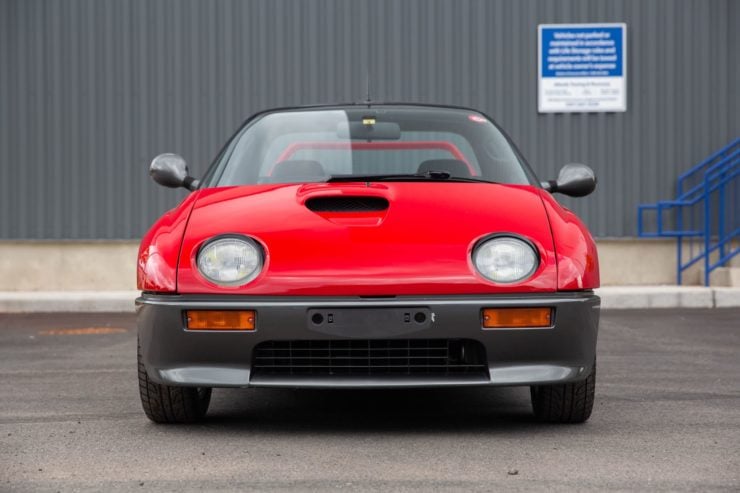
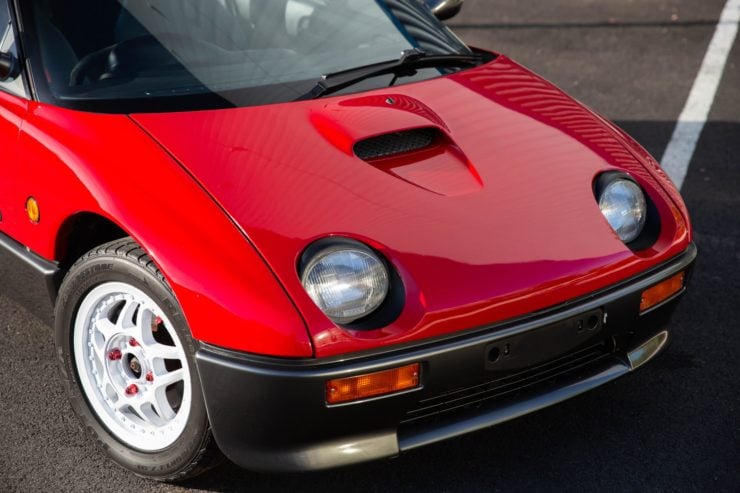
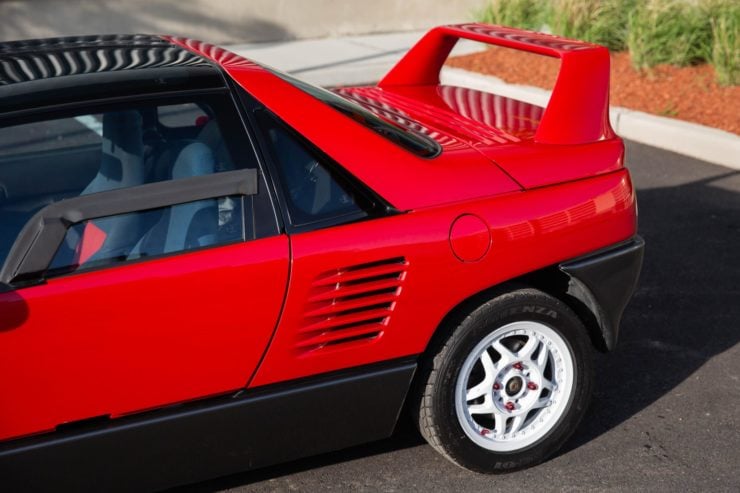
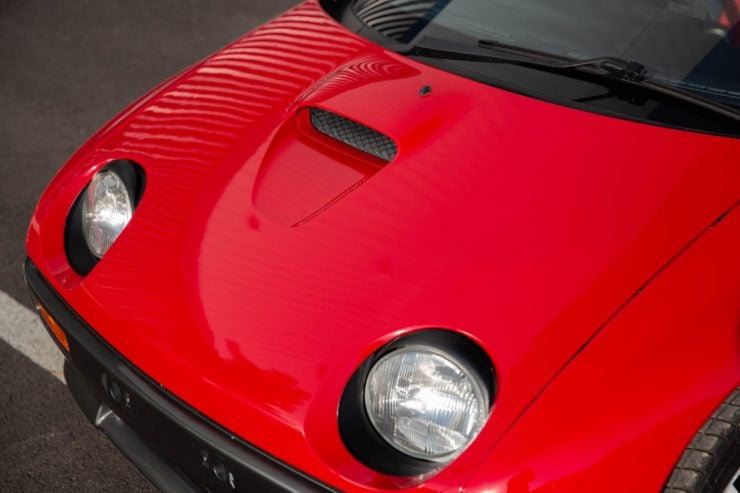
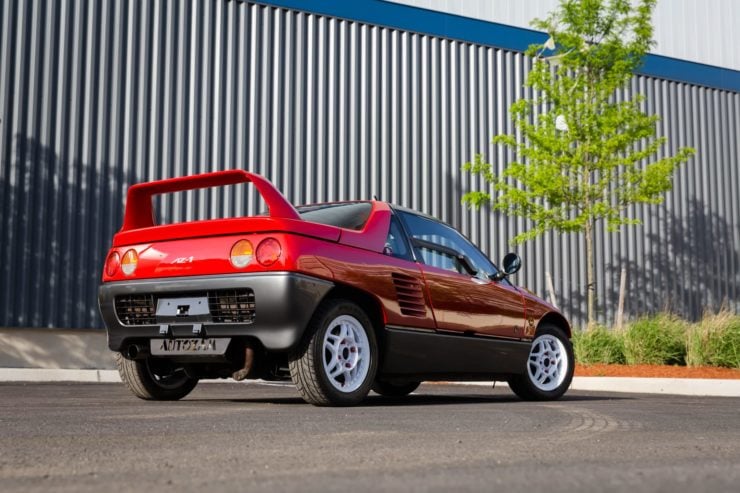
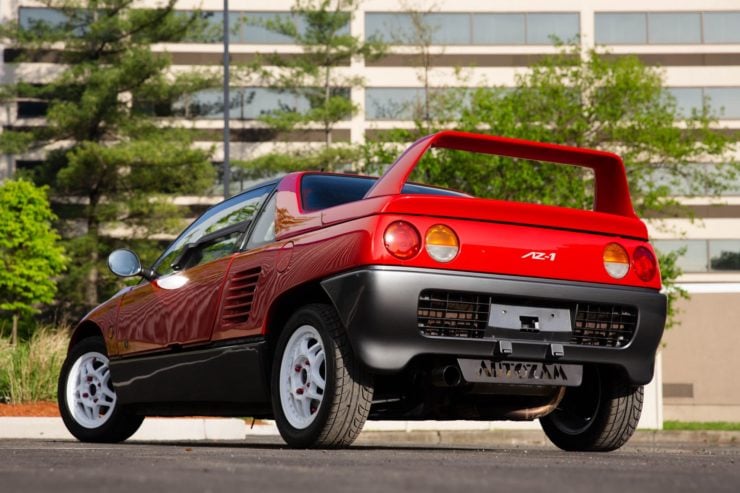
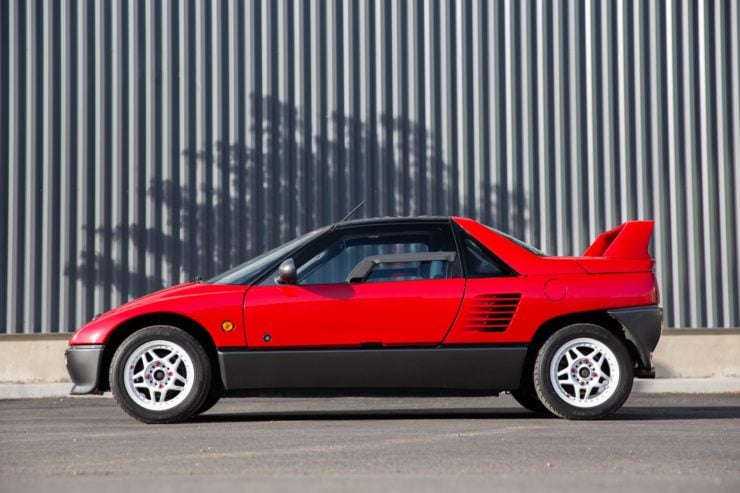
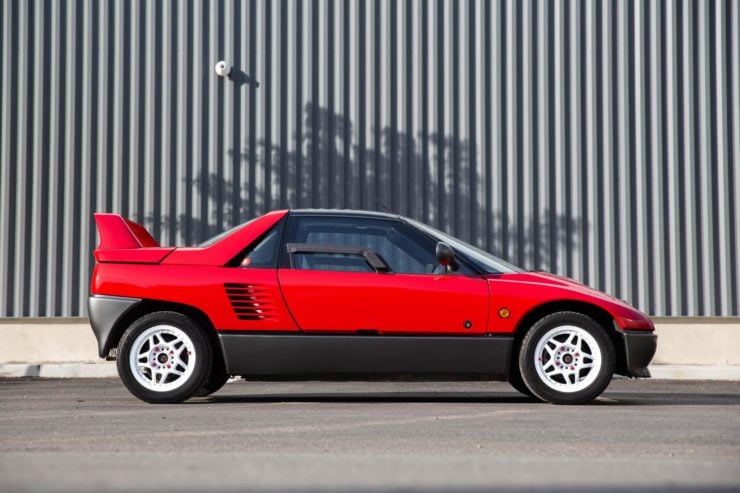
Images courtesy of Bring a Trailer

